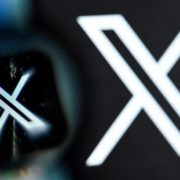By Qrent Managing Executive Kwirirai Rukowo
The IT industry loves its buzzwords – circular economy, sustainability, ESG – but too many organisations still buy and discard hardware without real accountability. They tick boxes and issue statements, yet ignore the one question that defines true responsibility: who takes the equipment back when it’s no longer needed?
RELATED: Smart metering to generate $60b in revenue for vendors globally by 2027, Juniper Research
At Qrent we believe in doing more than the easy thing. Yes, we promote reduce, reuse and recycle. But that alone is not enough. Under the National Environmental Management: Waste Act, 2008 we are bound by Extended Producer Responsibility (EPR) – meaning if you supply or refurbish equipment you must accept the entire lifecycle of your product. The burden cannot magically shift from refurbisher (vendor) to end-user (client).
Refurbishing or responsibly recycling obsolete machines
What this means in practice: when a machine becomes obsolete, we take it back. We ensure it is not dumped in a landfill, nor allowed to pollute rivers or soil. We track it, refurbish it or responsibly recycle it. We close the loop. If your vendor won’t make that commitment, you’re still playing by the old rules of waste and irresponsibility.
Consider this: organisations sign nice contracts, but their vendors walk away when the gear fails or becomes redundant. The client is left with liability or worse the hardware ends up in the wrong place. That is not sustainability. That is shifting cost and risk and adversely affecting the total cost of ownership. If you hold the vendor only for delivery you are playing into a broken model.
Clients must demand vendors demonstrate EPR in action
We are telling our clients: challenge your vendors. Demand that they demonstrate EPR in action. Insist on lifecycle management: from acquisition through to decommission, return, reuse, recycling. If they cannot show adequate processes, metrics, certificates, chain-of-custody, then they are not your partner in sustainability. They are convenience suppliers.
Here is the uncomfortable truth: many vendors are comfortable selling you new gear, collecting revenue, and leaving you to deal with disposal. Many clients pay premium for new gear, believe it is safe, but then find the vendor disappears into the sunset when the next refresh cycle begins. The waste piles build. Landfills grow. Waterways risk contamination. That is not innovation. That is negligence.
Qrent accepts obsolete equipment from clients through seamless ITAD program
Our position at Qrent is unambiguous. We accept obsolete equipment from our clients through our seamless information technology asset disposition (ITAD) program. We take responsibility for ensuring it does not end up in landfill or water. We refurbish where possible, we recycle where necessary. We document impact: how many kilos of e-waste prevented, how many device lives extended, how many critical raw materials spared extraction. We do the heavy lifting so our clients can report real progress rather than spin.
If you are in procurement, vendor-management or sustainability, ask this: when your vendor says “we’ll handle disposal”, how exactly? Do they guarantee safe decommissioning? Do they show you certificates? Do they take equipment back free of charge? Do they prove they keep it out of landfill and water systems? If not, you are outsourcing risk.
Moral duty and business sense coincide
We are raising the bar. Not because it is fashionable but because we believe moral duty and business sense coincide. The world cannot afford another cycle of buy-use-dump. With regulation tightening, reputations exposed, and stakeholders demanding authenticity, the question is no longer “should we?” but “who will step up?”
Let’s be clear: buying refurbished gear is not the full answer if the vendor fails the back-end. Without the take-back and responsible treatment your good intentions end in a hole in the ground. The vendor who only delivers shiny new or refurbished hardware but leaves its obsolescence unaccounted for is complicit in waste. They are part of the problem.
So here is the challenge to the market:
- We will hold ourselves accountable.
- We will accept the equipment that clients hand back.
- We will refuse to let it become someone else’s problem.
- We will document and report impact.
- We will demand that clients hold their vendors to the same standard.
And to clients: whether you realise it or not, your vendor-assessment should include end-of-life. It is not optional. It is not a nice-to-have. If your vendor cannot demonstrate full lifecycle responsibility, you are buying into a legacy of waste.
Sustainability is not a label, it is a process, a commitment, a chain of actions. If you buy IT equipment and then look away, you are partially responsible for what happens after. Ask the tough questions. Reject the easy answer. Choose vendors who do more than deliver gear. Choose those who accept the full cost, full responsibility, full lifecycle. Our environment, our business and our integrity depend on it.































